Find Help
More Items From Ergsy search
-
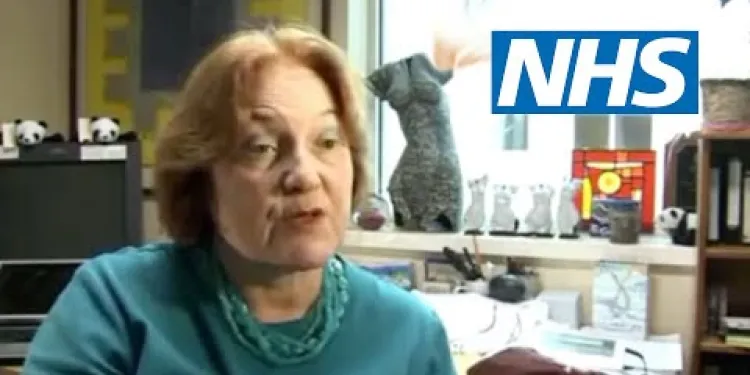
Anorexia nervosa | NHS
Relevance: 100%
-
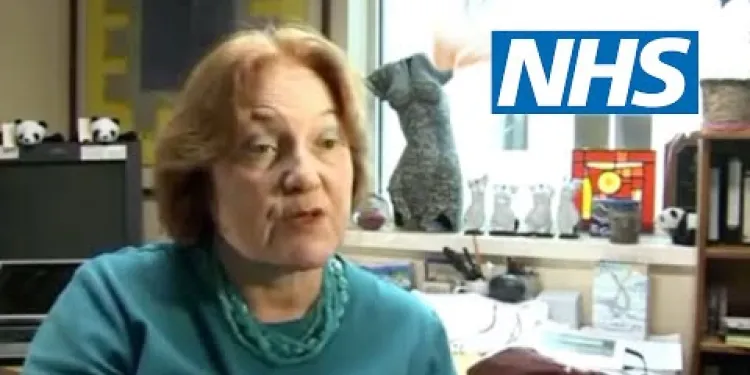
Anorexia nervosa | NHS
Relevance: 100%
-
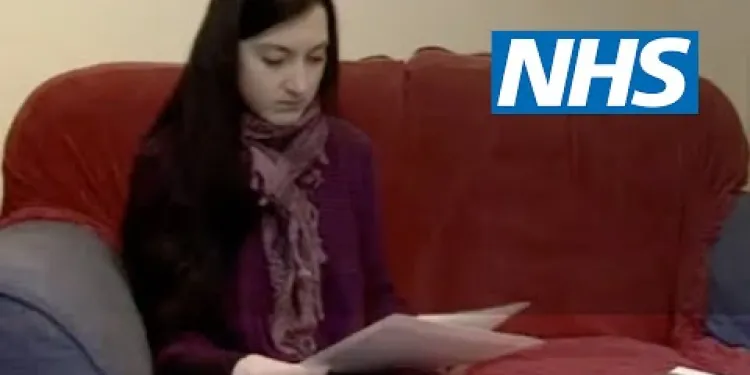
Anorexia: Katie's story | NHS
Relevance: 55%
-
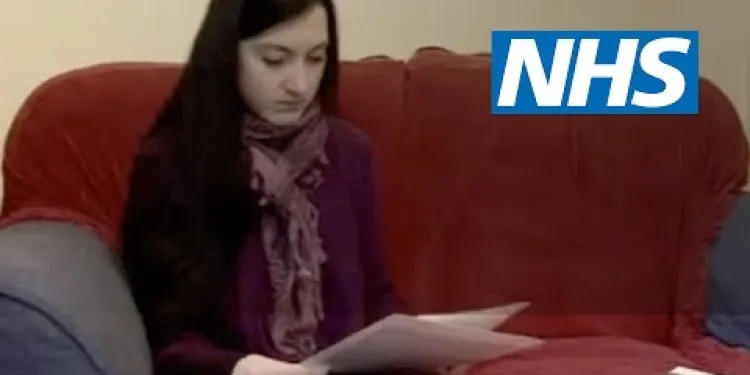
Anorexia: Katie's story | NHS
Relevance: 54%
-
What are the main types of eating disorders?
Relevance: 39%
-
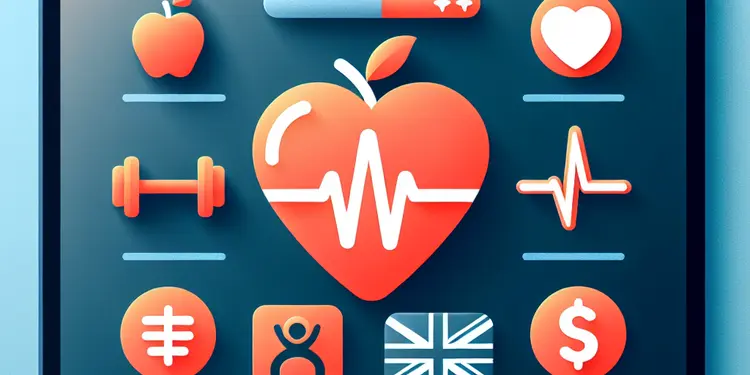
What is the impact of eating disorders on physical health?
Relevance: 38%
-
What is an eating disorder?
Relevance: 31%
-
What are the long-term effects of untreated eating disorders?
Relevance: 28%
-
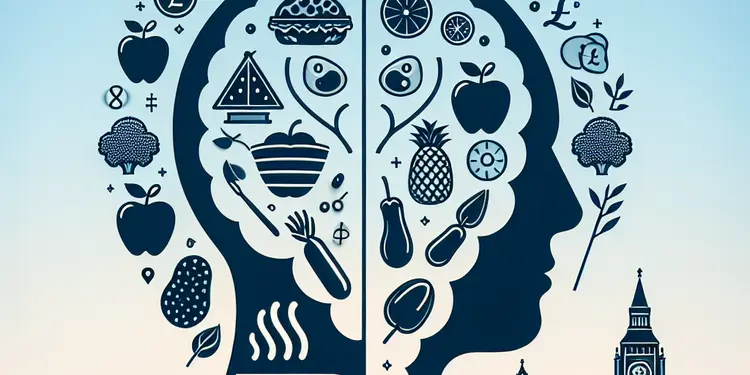
How do eating disorders affect mental health?
Relevance: 28%
-
How are eating disorders diagnosed?
Relevance: 24%
-
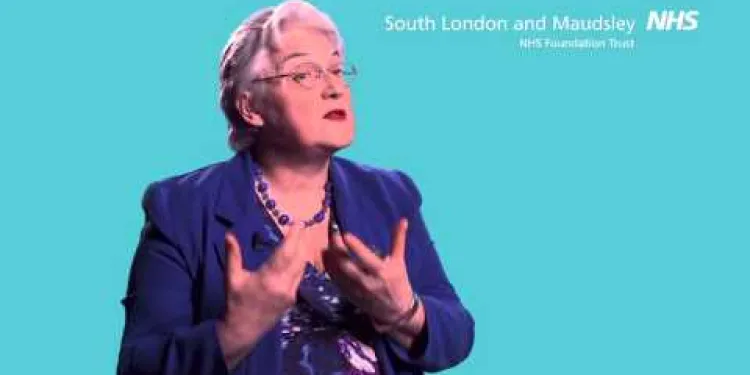
Eating disorders: treatment
Relevance: 22%
-
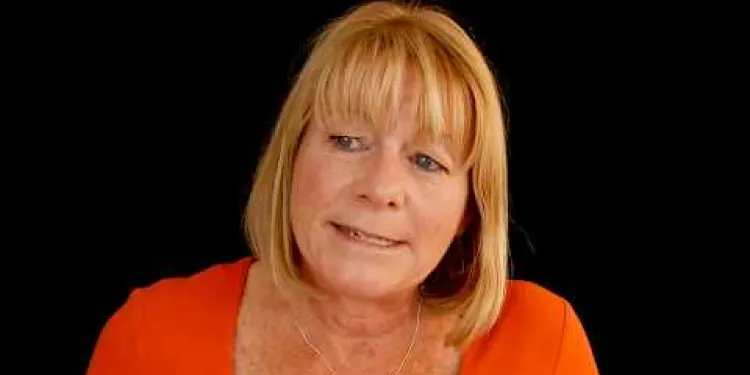
The treatment approach for an eating disorder
Relevance: 22%
-

Jess Rann - Specialist Eating Disorders Dietitian
Relevance: 22%
-
What is an Eating Disorder?
Relevance: 21%
-
What is body dysmorphia and how is it related to eating disorders?
Relevance: 19%
-
Can eating disorders be treated?
Relevance: 16%
-
What are common symptoms of eating disorders?
Relevance: 15%
-
How can someone help a loved one with an eating disorder?
Relevance: 15%
-
What is the role of therapy in treating eating disorders?
Relevance: 15%
-
Who is at risk for developing an eating disorder?
Relevance: 14%
-
Are eating disorders only about food?
Relevance: 14%
-
Are there preventative measures for eating disorders?
Relevance: 14%
-
Is it possible to recover from an eating disorder?
Relevance: 6%
-
Can eating disorders occur with other mental health conditions?
Relevance: 6%
-

Are there any medical conditions that disqualify someone from using weight loss jabs?
Relevance: 6%
Anorexia Nervosa
What is Anorexia Nervosa?
Anorexia nervosa is a serious mental health condition and eating disorder where individuals have an intense fear of gaining weight. As a result, they often restrict their food intake and may become dangerously underweight. This condition is not solely about food; it is often associated with severe distress about body image and a strong desire for control over one’s environment and circumstances.
Signs and Symptoms
People with anorexia nervosa may exhibit a variety of physical and behavioral symptoms. These can include:
- Severe weight loss
- Distorted body image, believing they are overweight despite being underweight
- Avoiding food and meals
- Extreme concern with dieting, food, and control of calories
- Excessive exercise
- Social withdrawal and irritability
- Physical symptoms like fatigue, dizziness, and thinning hair
Causes and Risk Factors
The exact cause of anorexia nervosa is unknown and likely involves a complex interplay of genetic, biological, environmental, and psychological factors. Risk factors include:
- Family history of eating disorders, depression, or substance abuse
- Personality traits like perfectionism or anxiety
- Societal pressures and media influence on body image
- Traumatic experiences or major life changes
Treatment and Support
Treating anorexia nervosa typically requires a multi-faceted approach. Key components include:
- Medical Monitoring: Regular health checks to monitor weight and address any medical complications.
- Nutritional Counseling: Guidance on healthy eating habits and restoring a balanced diet.
- Therapy: Psychological support through cognitive behavioural therapy (CBT), family therapy, and other therapeutic methods to address underlying issues and change unhealthy patterns of thinking.
- Medication: In some cases, medications like antidepressants may be prescribed to treat co-existing mental health conditions.
Getting Help in the UK
If you or someone you know may be struggling with anorexia nervosa, it is crucial to seek professional help as early as possible. In the UK, the National Health Service (NHS) offers resources and support, including referrals to specialists in eating disorders. You can start by visiting your GP, who can provide guidance, referrals, and information about local services. For additional support, numerous charities and organizations, like Beat, offer helplines, resource centres, and community support groups.
Anorexia Nervosa
What is Anorexia Nervosa?
Anorexia nervosa is a serious illness that affects how people eat. People with anorexia are very scared of gaining weight. They eat very little food because of this fear and become very thin. Anorexia is not just about food. It also involves feeling upset about how they look and wanting to have control over their life.
Signs and Symptoms
People with anorexia may show different signs. These can include:
- Being very thin
- Thinking they are fat even when they are very thin
- Avoiding eating with friends or family
- Worrying a lot about eating and counting calories
- Exercising too much
- Spending less time with friends and getting annoyed easily
- Feeling very tired, dizzy, and having thin hair
Causes and Risk Factors
We do not know exactly what causes anorexia. It could be a mix of different things like genes, feelings, or things happening around them. Some risks include:
- Family members who have eating problems, sadness, or use drugs
- Being a perfectionist or feeling very anxious
- Feeling pressure from society or media to look a certain way
- Bad experiences or big changes in life
Treatment and Support
Helping someone with anorexia needs lots of different supports. Important steps are:
- Medical Monitoring: Checking their health often and watching their weight.
- Nutritional Counseling: Learning to eat well and have a balanced diet.
- Therapy: Talking to a counselor to change thoughts and feelings. This can be CBT or other therapies.
- Medication: Sometimes medicines like antidepressants can help with other feelings like sadness.
Getting Help in the UK
If you or someone you know may have anorexia, it is important to get help quickly. In the UK, the NHS can help with finding experts in eating problems. You can visit your family doctor (GP) for advice and finding support near you. There are also charities, like Beat, that offer phone lines, information, and group support.
Frequently Asked Questions
What is anorexia nervosa?
Anorexia nervosa is a serious mental health condition and eating disorder where people keep their body weight low by dieting, vomiting, using laxatives, or excessively exercising due to an intense fear of gaining weight.
What are the symptoms of anorexia nervosa?
Symptoms include problems with weight loss, distorted body image, prolonged fasting, excessive exercise, self-induced vomiting, and missing meals.
Who is affected by anorexia nervosa?
Anorexia nervosa can affect anyone, but it is most common in teenage girls and young women. It's also becoming more common in boys and men.
What causes anorexia nervosa?
The exact cause is unknown, but a combination of biological, psychological, and environmental factors, including genetics, personality traits, and societal pressures, are believed to contribute.
How is anorexia nervosa diagnosed?
Diagnosis typically involves a thorough medical history, physical examination, and may include psychological evaluation to rule out other mental health conditions.
What are the health risks associated with anorexia nervosa?
Health risks include heart problems, bone weakening (osteoporosis), anaemia, kidney issues, and in severe cases, it can be life-threatening.
How common is anorexia nervosa?
Anorexia nervosa is one of the most common eating disorders, especially among young women and teenagers.
Can anorexia nervosa be treated?
Yes, anorexia nervosa can be treated. Treatment often includes a combination of psychological therapy, nutrition education, medical monitoring, and sometimes medications.
Where can I get help for anorexia nervosa in the UK?
You can get help from your GP, mental health services, and specialist eating disorder organisations like BEAT. There are also online resources and local support groups available.
What support is available for families of those with anorexia nervosa?
Family support is critical, and many services offer family therapy, support groups, and educational resources to help families understand and cope with the condition.
Can anorexia nervosa reoccur after treatment?
Yes, there is a risk of recurrence. Continuous follow-up and support are crucial to help prevent relapse.
Is anorexia nervosa related to other mental health conditions?
Anorexia nervosa is often associated with other mental health conditions such as depression, anxiety, and obsessive-compulsive disorder (OCD).
Is hospitalization required for anorexia nervosa?
In severe cases where there's a significant health risk, hospitalization may be necessary to stabilize the individual and provide intensive treatment.
How can friends support someone with anorexia nervosa?
Friends can support by being patient, listening without judgment, encouraging them to seek professional help, and educating themselves about the disorder.
Can anorexia nervosa be prevented?
While it may not always be preventable, early intervention and promoting a healthy body image and self-esteem can help reduce the risk.
What is anorexia nervosa?
Anorexia nervosa is when people eat very little because they are worried about their weight. They might feel too fat even if they are very thin. This can make them very sick.
People with anorexia feel scared about gaining weight, even if they need to. This can affect how they see themselves.
If you know someone with anorexia, it is important to be kind and support them. They can talk to a doctor or someone they trust for help.
Support tools:
- Talk to a trusted adult.
- Visit a doctor or therapist.
- Find support groups for more help.
Anorexia nervosa is a serious health problem. It is an eating disorder where people try to keep their body very thin. They do this because they are very scared of getting fat.
To stay thin, they might diet, make themselves sick, take medicines to make them poop, or exercise too much.
What are the signs of anorexia?
Anorexia is an illness that makes people worry a lot about their weight and food. Here are some things to look out for:
- Eating very little food
- Feeling very afraid of gaining weight
- Thinking they are fat, even when they are very thin
- Feeling sad or stressed about their body
- Exercising too much
If you or someone you know shows these signs, talk to a trusted adult or a doctor. They can help.
Using pictures or talking to someone can also help you understand better.
Signs to look out for:
- Losing a lot of weight.
- Thinking your body looks different than it really does.
- Not eating for a long time.
- Exercising too much.
- Making yourself throw up.
- Skipping meals.
Who can get anorexia nervosa?
Anorexia nervosa is an illness that can make people very worried about their weight and eating. It can affect:
- Boys and girls
- Teenagers
- Adults
If you think you or someone else has anorexia, it's important to talk to a doctor. They can help. Drawing pictures or writing down feelings can also help people talk about their worries.
Anorexia nervosa can happen to anyone. But, it mostly happens to teenage girls and young women. It is also happening more with boys and men.
What makes someone have anorexia?
Anorexia is a condition where people do not eat enough. It can make them very thin and sick. There are many reasons why someone might have anorexia:
- They may want to look a certain way.
- They might feel pressure from friends or media to be thin.
- Sometimes, people with anorexia have low self-esteem.
- It can also run in families, so if someone in the family has it, others might get it too.
- People might worry a lot or feel sad, which can lead to anorexia.
Learning more about anorexia can be helpful. Talking to trusted adults, like parents or teachers, and visiting a doctor can provide support. If you or someone you know has anorexia, talking to professionals who know about these things can help a lot.
We are not sure what causes it. But it might happen because of different reasons. These reasons might be about your body, how you think and feel, or things around you.
Some of these reasons can be:
- Your genes, which are passed down from your family.
- Your personality, which is how you are as a person.
- Pressure from society, which means feeling like you have to do what other people do.
If you need help, you can talk to someone you trust, like a parent, teacher, or friend. You can also write down your feelings or draw pictures to show how you feel. This can make it easier to understand and talk about it.
How do doctors find out if someone has anorexia?
To find out what is wrong, the doctor will:
- Ask questions about your health and past.
- Check your body to see how you're feeling.
- Talk to you about your feelings to make sure it’s not another problem.
If you find reading hard, you can use tools like audiobooks or reading apps. These can help you understand better.
What health problems can anorexia nervosa cause?
Anorexia nervosa is an eating disorder. It happens when people eat very little food.
Here are some health problems anorexia can cause:
- Weak bones, which can break easily.
- Feeling very tired and having little energy.
- Problems with the heart, like a slow heartbeat.
- Hair loss or very thin hair.
- Feeling cold all the time.
- Stomach pain and trouble going to the toilet.
- Feeling sad or worried (depression or anxiety).
If you or someone you know is struggling, it’s important to talk to a doctor or trusted adult. They can help.
Using pictures, talking with someone, or using apps can be helpful to understand more.
Health risks include heart problems, weak bones, low iron in blood, kidney troubles, and if it gets very bad, it can be life-threatening.
How often do people get anorexia?
Anorexia nervosa is a problem where people eat very little food. This happens a lot with young women and girls.
Can you get help for anorexia nervosa?
Yes, people can get help for anorexia nervosa. It is important to talk to a doctor or a therapist. They can help you feel better and get strong again.
Here are some things that can help:
- Talk to someone you trust about how you feel.
- Go to a doctor or a therapist for help.
- Join a support group to meet others who understand.
- Use calming exercises to relax and feel better.
Getting help is important. It can make you feel happier and healthier.
Yes, anorexia nervosa can be helped. Getting better usually involves different kinds of help, like talking to a therapist, learning about healthy eating, having a doctor check your health, and sometimes taking medicines.
Where can I find help for anorexia in the UK?
If you have anorexia and need help, here are some places you can go:
- Talk to your doctor. They can help you find the right support.
- You can call Beat at 0808 801 0677. It's a helpline for eating disorders.
- Visit the NHS website. They have lots of information and advice.
- Tell a family member or a friend you trust. They can support you too.
Remember, you are not alone. There are people who want to help you feel better.
You can ask your doctor, mental health services, or special eating disorder groups like BEAT for help. There are also websites and local groups that can support you.
How can families get help if someone has anorexia?
Family help is very important. Lots of places can help families. They have special family talking sessions, support groups, and learning materials. These can help families understand and deal with the condition better.
Can anorexia nervosa come back after treatment?
Sometimes, anorexia nervosa can come back even after you get better. It is important to keep talking to doctors or therapists to help stay healthy. Eating good food and having support from family and friends can also help.
There is a chance that the problem could come back. It’s important to have regular check-ups and support to help stop it from happening again.
Is anorexia nervosa linked to other mental health problems?
Anorexia nervosa is an eating problem. It is when someone worries a lot about their weight and eats very little. This can lead to being very thin and not healthy.
Anorexia can be linked to other mental health problems. This means a person with anorexia might also feel very sad, scared, or worried.
If you or someone you know has anorexia, it's important to talk to a doctor. They can help with anorexia and any other feelings that are hard to handle.
Using things like making a list of your feelings or talking to someone you trust can help.
People who have anorexia often have other mental health issues too, like feeling very sad (depression), feeling very worried (anxiety), or needing things to be just right (OCD).
It might help to talk to someone you trust, like a family member or friend. You can also use calming techniques, like deep breathing or listening to soft music, to help you feel better.
Do people with anorexia nervosa need to go to the hospital?
Sometimes, when a person is very sick and it is dangerous for their health, they might need to go to the hospital. This helps them get better and feel safe. In the hospital, they can get special care and treatment to help them improve.
How can friends help someone with anorexia nervosa?
Here are some ways friends can help:
- Listen: Be there to listen when your friend wants to talk. Let them know you care.
- Be Patient: Recovery takes time. Be patient and keep supporting them.
- Learn: Try to learn more about anorexia. This will help you understand what your friend is going through.
- Encourage: Encourage your friend to seek help from doctors or therapists.
- Be Positive: Focus on positive things and remind your friend of their good qualities.
Tools that might help:
- Support Groups: Joining a support group can make them feel less alone.
- Hotlines: There are phone lines where they can talk to someone who understands.
Remember to take care of yourself too, so you can be a good friend.
Friends can help by being patient. They should listen without saying anything bad. They can tell them to see a doctor who can help. Friends can also learn more about the problem to understand better.
Can we stop anorexia nervosa from happening?
Sometimes, we can't stop it from happening. But we can help by acting early and talking about feeling good about our bodies and who we are. This can lower the chance of it happening.
Useful Links
This website offers general information and is not a substitute for professional advice.
Always seek guidance from qualified professionals.
If you have any medical concerns or need urgent help, contact a healthcare professional or emergency services immediately.
Some of this content was generated with AI assistance. We’ve done our best to keep it accurate, helpful, and human-friendly.
- Ergsy carfully checks the information in the videos we provide here.
- Videos shown by Youtube after a video has completed, have NOT been reviewed by ERGSY.
- To view, click the arrow in centre of video.
- Most of the videos you find here will have subtitles and/or closed captions available.
- You may need to turn these on, and choose your preferred language.
- Go to the video you'd like to watch.
- If closed captions (CC) are available, settings will be visible on the bottom right of the video player.
- To turn on Captions, click settings .
- To turn off Captions, click settings again.
More Items From Ergsy search
-

Anorexia nervosa | NHS
Relevance: 100%
-

Anorexia nervosa | NHS
Relevance: 100%
-

Anorexia: Katie's story | NHS
Relevance: 55%
-

Anorexia: Katie's story | NHS
Relevance: 54%
-
What are the main types of eating disorders?
Relevance: 39%
-

What is the impact of eating disorders on physical health?
Relevance: 38%
-
What is an eating disorder?
Relevance: 31%
-
What are the long-term effects of untreated eating disorders?
Relevance: 28%
-

How do eating disorders affect mental health?
Relevance: 28%
-
How are eating disorders diagnosed?
Relevance: 24%
-

Eating disorders: treatment
Relevance: 22%
-

The treatment approach for an eating disorder
Relevance: 22%
-

Jess Rann - Specialist Eating Disorders Dietitian
Relevance: 22%
-
What is an Eating Disorder?
Relevance: 21%
-
What is body dysmorphia and how is it related to eating disorders?
Relevance: 19%
-
Can eating disorders be treated?
Relevance: 16%
-
What are common symptoms of eating disorders?
Relevance: 15%
-
How can someone help a loved one with an eating disorder?
Relevance: 15%
-
What is the role of therapy in treating eating disorders?
Relevance: 15%
-
Who is at risk for developing an eating disorder?
Relevance: 14%
-
Are eating disorders only about food?
Relevance: 14%
-
Are there preventative measures for eating disorders?
Relevance: 14%
-
Is it possible to recover from an eating disorder?
Relevance: 6%
-
Can eating disorders occur with other mental health conditions?
Relevance: 6%
-

Are there any medical conditions that disqualify someone from using weight loss jabs?
Relevance: 6%


